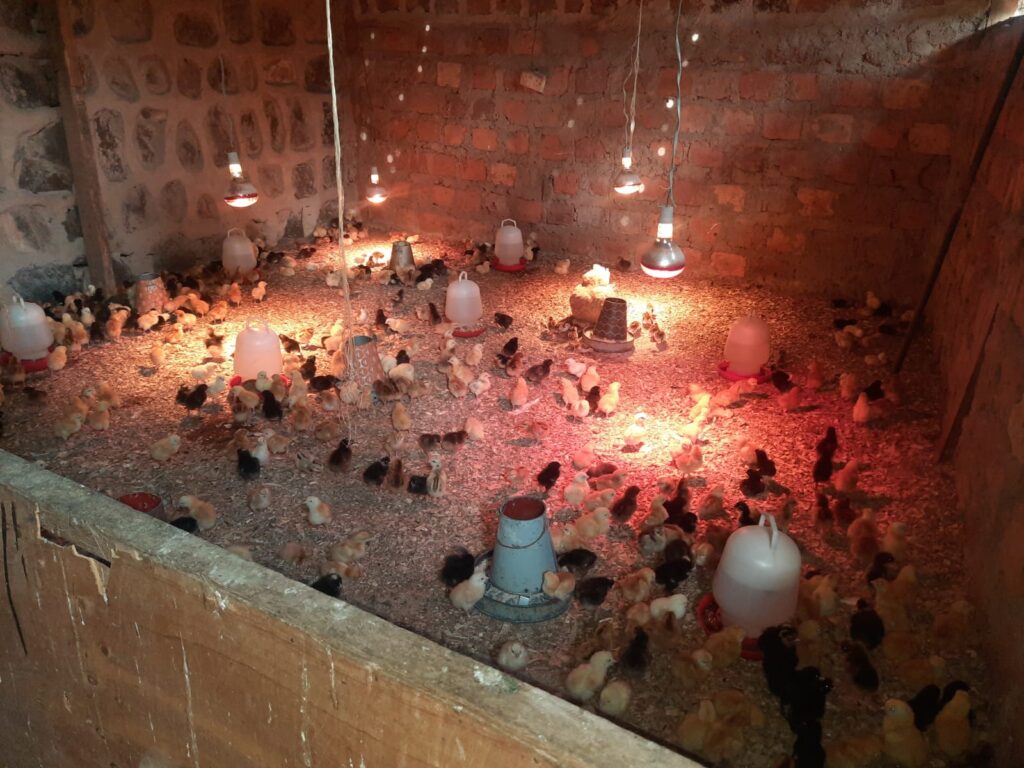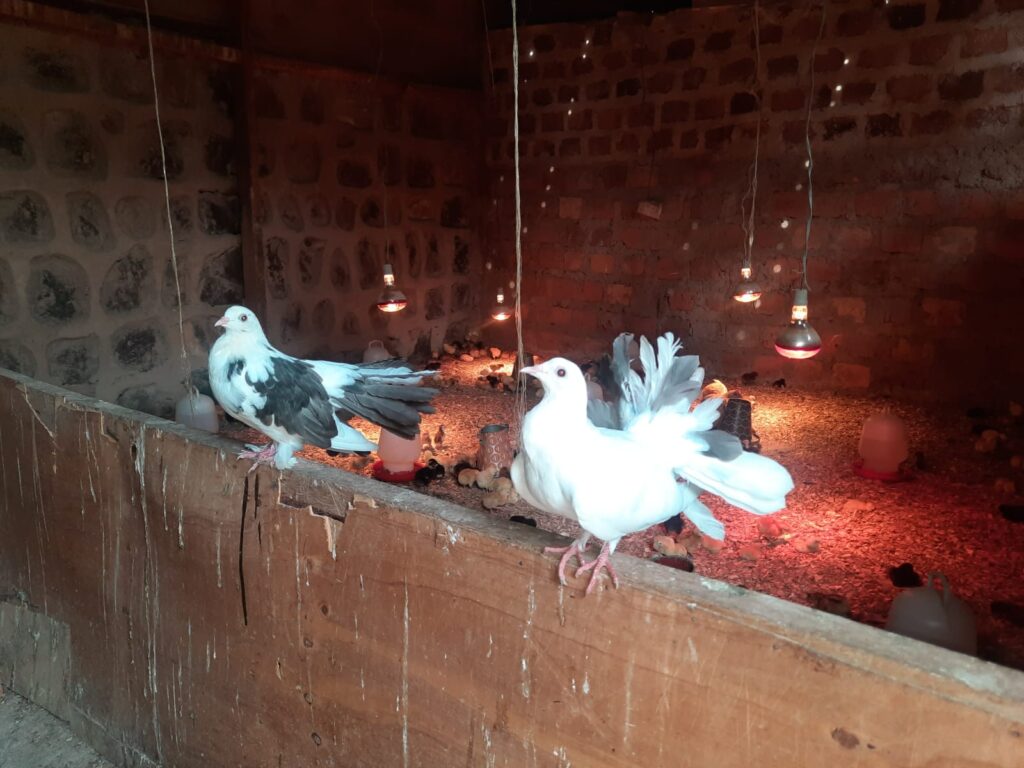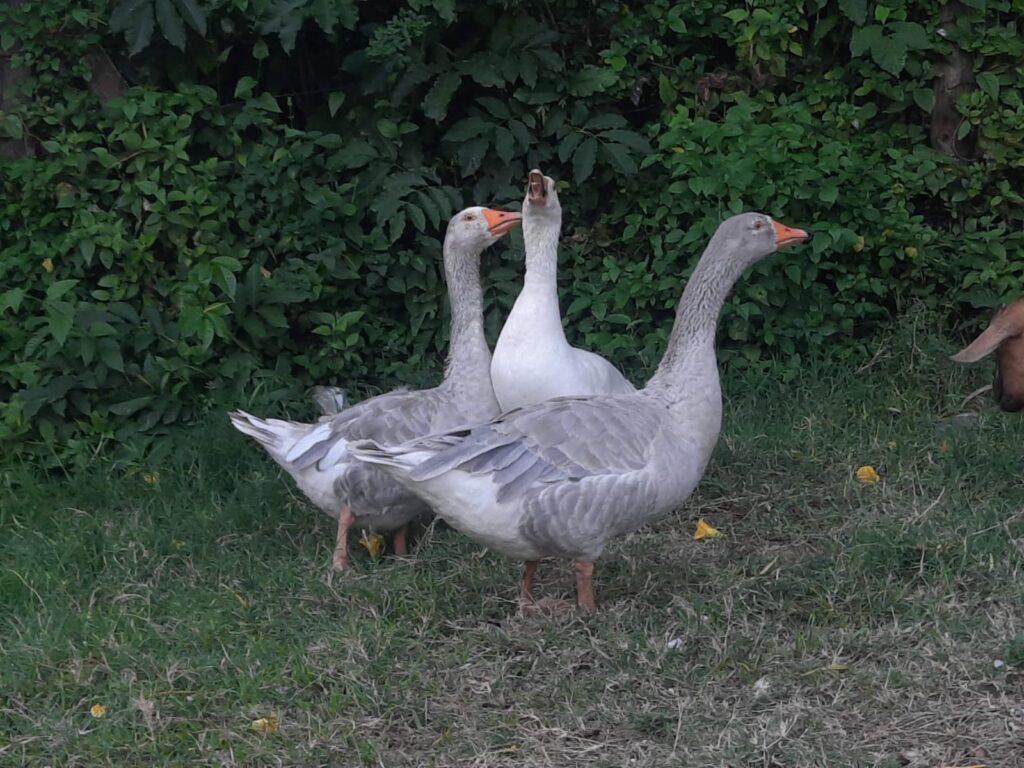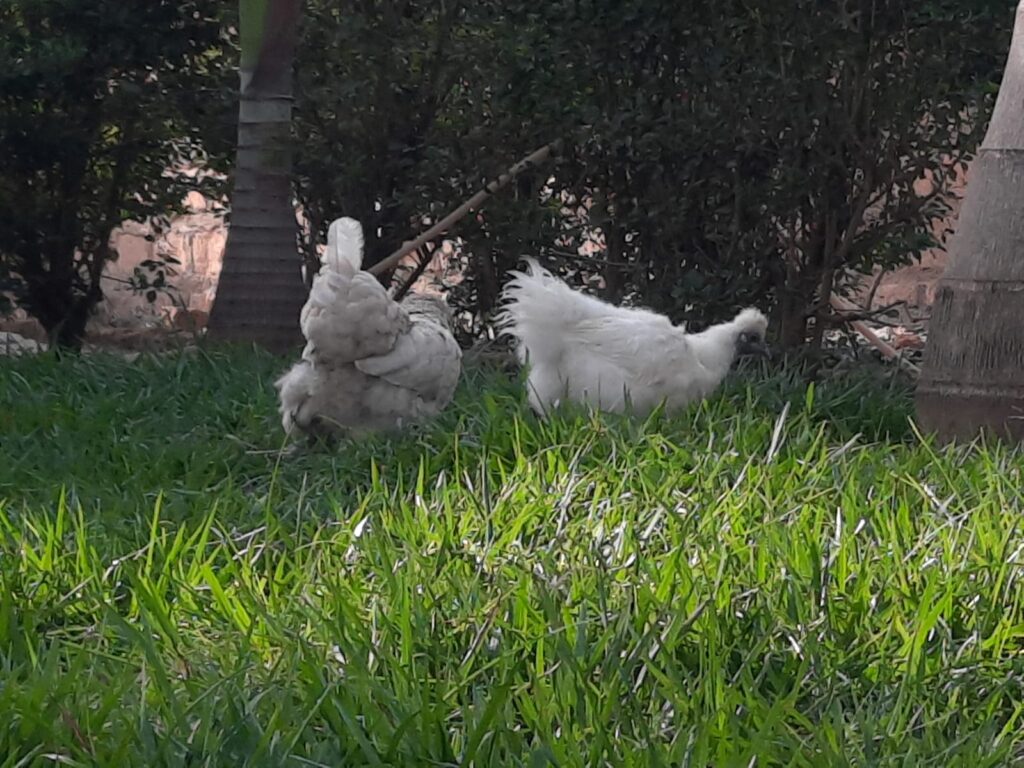“Why keep birds that you can’t eat?”
This is a question Paul Obuya encounters quite often.
Obuya rears ornamental birds.
It started as a hobby in 2018, but he later discovered that it can be a source of livelihood, commercializing it in 2019.
From a distance, melodic tunes from the birds invites you to Victoria Eco farm in Dunga, Kisumu.
Fascinating birds covered with beauty can be seen hoovering around the compound.
Obuya has been managing the farm on the two-acre parcel of land on his brothers backyard for four years.
Today, the farm has 446 birds.
Those taking the eggs and chicks at a young stage have suffered losses and we decided on not selling eggs and chicks but only mature chicks
Paul Obuya
The farm hosts a variety of ornamental birds including fantail pigeons, geese, turkeys, guinea fowls and ornamental chicken.
He offers to take us around the farm.
We get to a room hosting what he describes as ‘day old original breed of bantam and silkie chicken’.
He keeps the chicks here till they are strong enough to survive in the open.
“Those taking the eggs and chicks at a young stage have suffered losses and we decided on not selling eggs and chicks but only mature chicks,” he says.

Their breed originated from Spain, China and Italy.
The birds which lay three eggs in a week have feathers that feel like fur, black skin, blue earlobes and five toes on each foot whereas most chicken have four.
Obuya reveals that they sell the mature mallards for between Sh6000 and Sh12,000 per pair.
Fantail pigeons
Apart from bantam and silkie, they also have fantail pigeons.
Just like other breed of ornamentals, fantail pigeon feed on the same feeds as ornamental chickens; maize germ.
The entire farm consumes two kilos of maize germ every day.
“We put the fantail pigeon and other ornamental chickens together since they feed on the same feeds which is maize germ and water,” said Obuya.
Obuya further reveals that he spends an average of Sh30, 000 per month to feed and care for these birds and chicken.

He has an incubator where he hatches eggs from his birds.
Here, the eggs take between 33 to 35 days before they hatch depending on the breed.
They are then taken to the brooder where the temperature is regulated at 35 to 40 degrees.
Lights are fixed in the room to provide heat when the temperatures change.
“They are distributed in the brooder due to the current conducive temperature, when it gets cold, they will go towards the light to get the warmth,” says Obuya.
Its 6pm and we spot one of the employers ushering in the turkeys and the geese inside the compound.
“They are back from the lake,” Obuya says as he helps to guide them in.
The geese are free range but are usually fed on pallets in the morning before they are released.
They hang around the swampy shores of Lake Victoria which provide them with a conducive environment to swim as well as feed on worms.
Where the whole idea came from
After completing his Engineering degree from the University of Nairobi, Obuya got a job on contract terms with an electrical company.
While working, one day, his friend invited him to attend an agricultural exhibition.
This is where he got the idea.

Having been Passionate for it, he decided to go for it.
“I have always had a passion for agriculture and I decided to try it out,” he narrates.
Since he did not have enough capital to start up the project, Obuya sought help from his brother who was in a position to facilitate the project.
Together they invested in the business with a capital of Sh50,000.
“We started with six bantam and silkie chicks and four years later we had 27,” he says with smile.
Market for the birds
According to the 27-year-old, the market for ornamental is growing and the business is becoming profitable.
Most of their regular customers are foreigners.
On a fair day they earn up to Sh40,000 from the sale of birds and eggs.
However, just like any other businesses, Obuya faces a couple of challenges.
Sometimes in 2020, Obuya’s hope in the business was shuttered as they lost over 800 chickens to Coryza.
Coryza is an acute respiratory disease of chicken caused by Av bacterium paragallinarum which is contributed by environmental factors such as poor ventilation and dirt.
“Once the poultry diseases are in your farm, 80 per cent of the chicken will die and you will have to start from zero,” he said.
Another challenge they face is the eggs which sometimes spoil in the incubators before they hatch.
Improved Kienyeji
Improved Kienyeji chicken room occupies the largest portion of the farm.
Here we find the parent cocks and chicken that lay eggs from kuroilers and rainbow rooster breed.
The room is a bee hive of activities with raised stands for drinking and a sun basking area.
The chicken have specific laying boxes.

Obuya collects 180 eggs in a day from this room.
“The demand for Kienyeji is high locally,” says Obuya.
He adds, “currently we have 280 hens in this area and the demand is high in the market.”
The chicken feed on maize germ and they also buy Sukuma wiki worth Sh700 every day to feed them.
